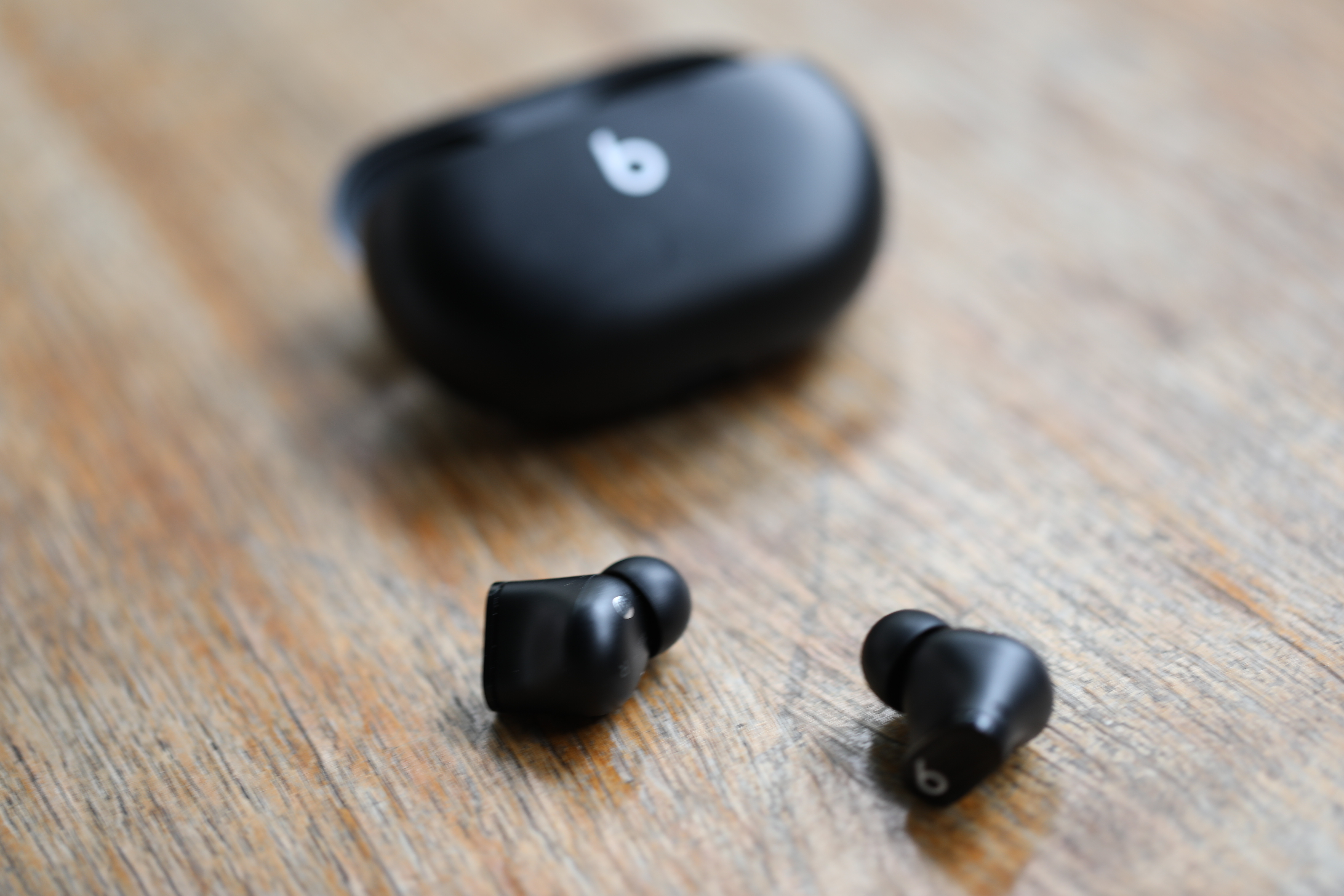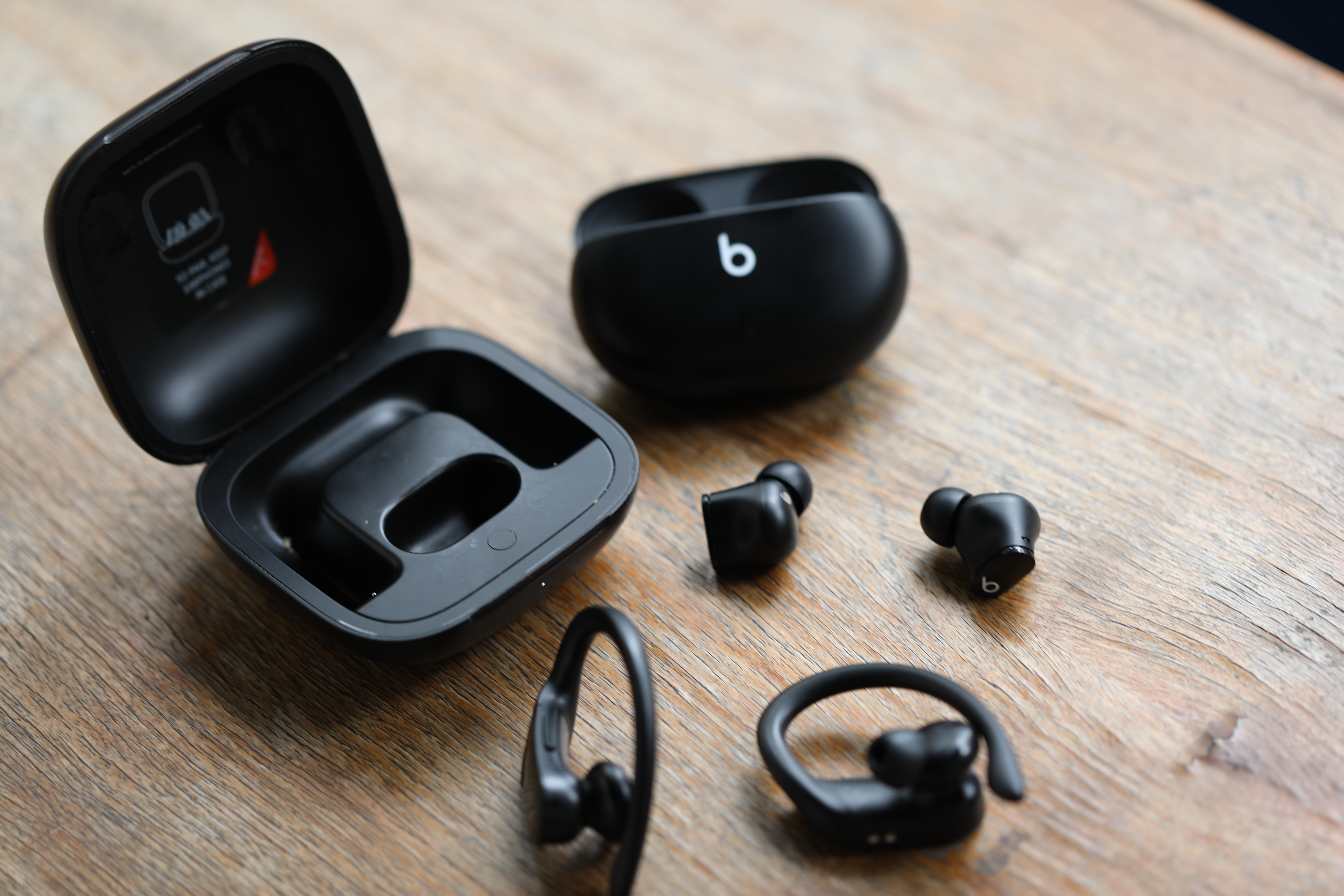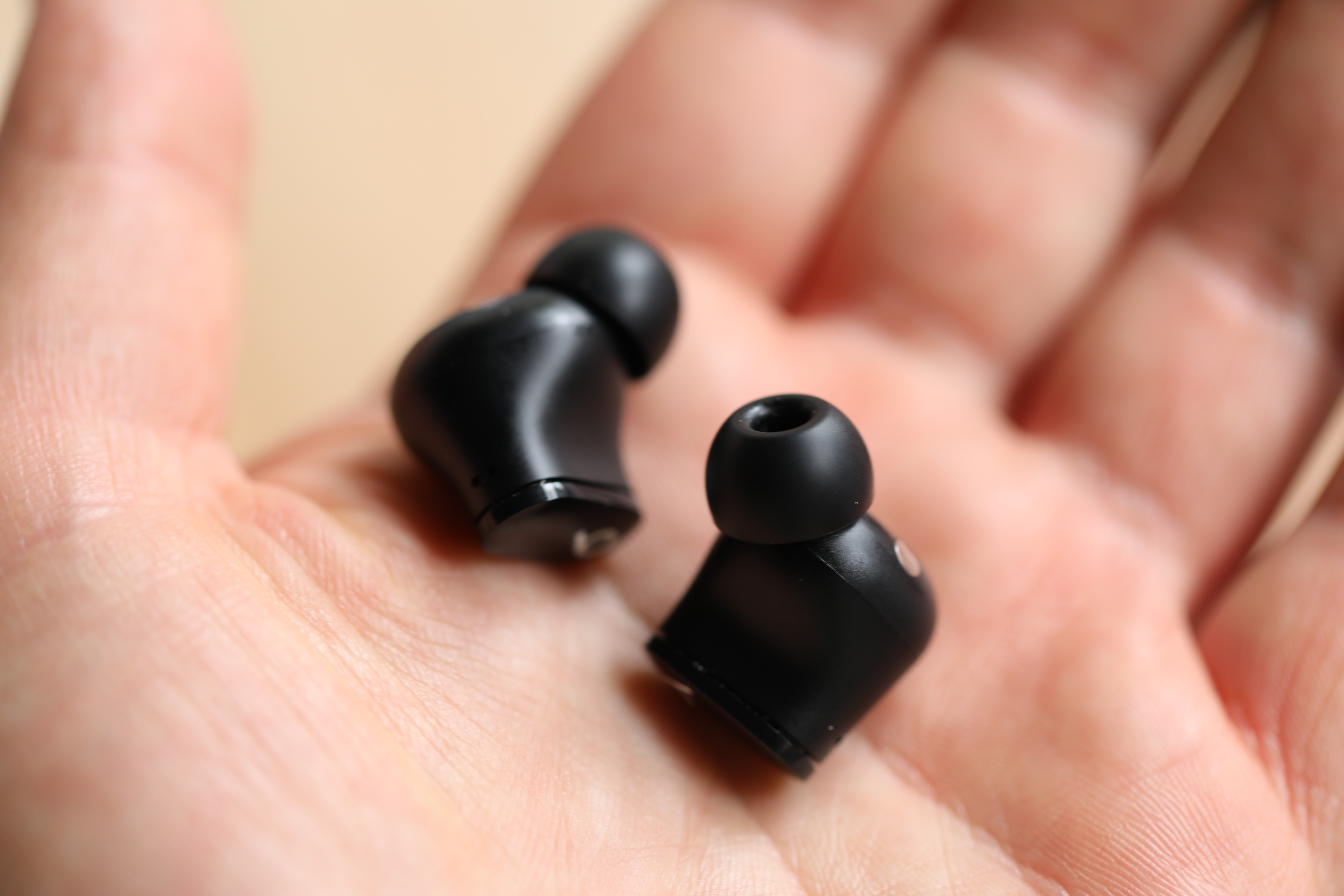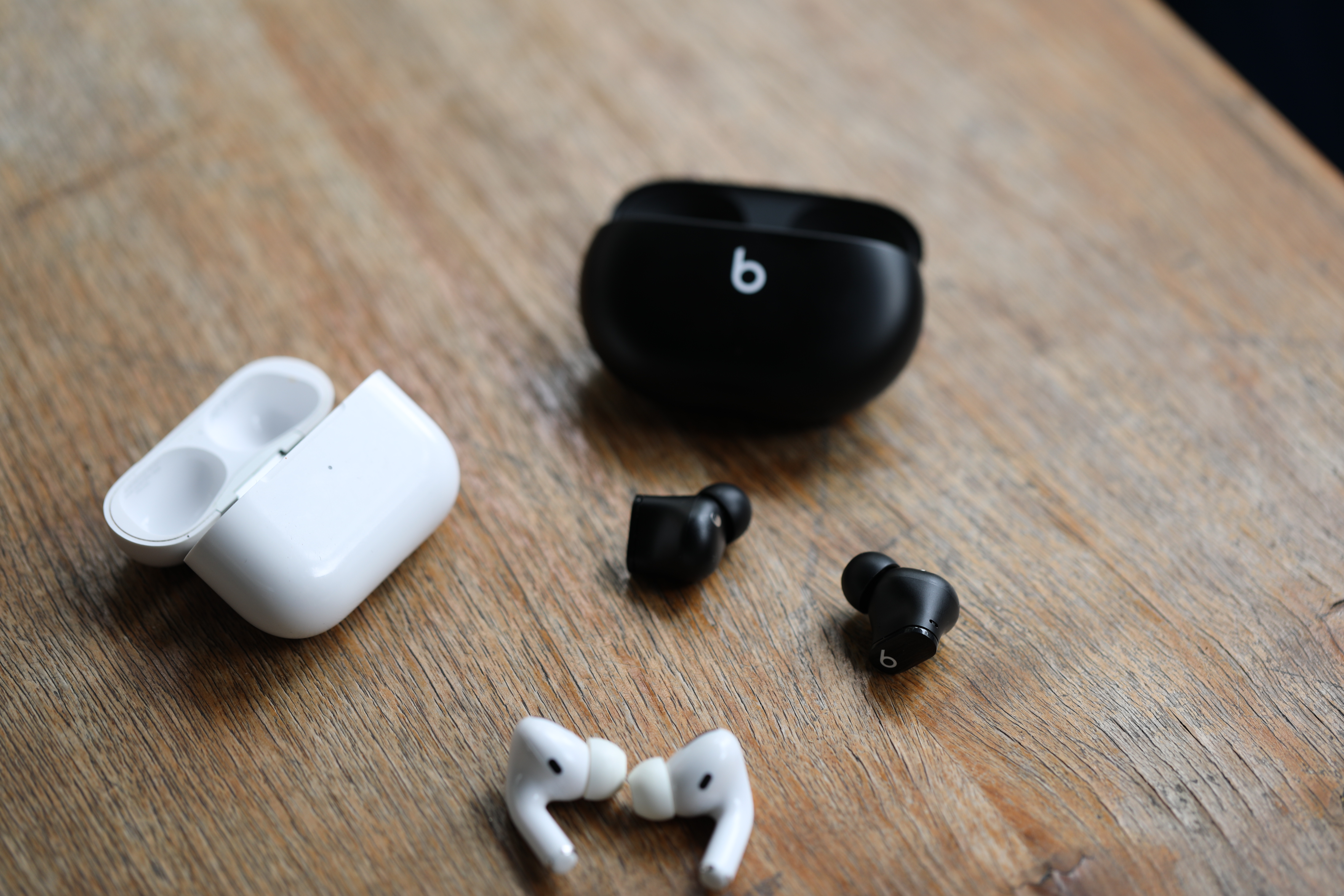When they were released in 2019, Powerbeats Pro were standouts. Two-plus years later, they remain one of the more well-rounded wireless earbuds on the market. There are things I would change, of course. Even in 2019, that charging case was ridiculously large. In 2021, the original case is all the more absurd. And, of course, noise-canceling has become nearly standardized among mid-tier buds.
After weeks of rumors and leaks (including a very public cameo on the ears of one of the world’s most famous athletes), Beats’ latest take on the space is finally official. Meet the Beats Studio Pro. They are not, as the company will be quick to tell you, a Powerbeats Pro replacement. Those are sticking around (which isn’t to say they won’t be getting their own upgrade).
Beats may be Apple-owned, but in most respects, the brand operates as it has. It was a wildly successful brand well before Apple got its hands on it, after all. So the company’s opted not to fix what’s clearly not broken. And while technology is clearly shared between the two camps (the H1 chip on the Powerbeats, example), it maintains a line between its self-branded audio offerings (AirPods, et al.) and the Beats line. There’s a reason Beats never really shows up at Apple events, in spite of having a big announcement the following week.

Image Credits: Brian Heater
Compared to AirPods, the Beats lines can get a bit convoluted. Effectively the new Studio Beats are a fully wireless earbud line from the company, borrowing a name from its premium over-ear line. But the new buds are actually significantly more compact than Powerbeats Pro, both in terms of the case and the buds themselves. Also notable — and frankly a bit surprising — is the pricing.
At $150, the Studio Buds are a fair bit cheaper than the two-year-old Powerbeats Pro, which currently go for between $160 and $200 online. Keep in mind, that’s down from a launch price of $250. That’s also $50 less than the AirPods and $20 less than the Galaxy Buds. It’s a nice price for what you’re getting here — though maybe my standards have shifted a bit, just coming off of a review of the $280 Sony WF-1000XM4.
Those Sonys are in a class of their own, of course. It’s much fairer for all parties concerned to pit them against other midrange headphones. And by that metric, they perform pretty well. The biggest addition here is active noise canceling — keep in mind, it was far from standard when the Powerbeats Pro were announced. These days, however, it feels like a glaring omission at this price range (Google, I’m looking at you).

Image Credits: Brian Heater
Another interesting top-level feature is fast pairing for both iOS and Android, making the Studio Beats one of the first products to walk that line. Funny that it comes from an Apple product, but again, the company seems be afforded at least a little bit of freedom on that front. It’s a small thing — after all, many people will only use the iOS/Android one-touch pairing once, but there’s a lot to be said for making the product as accessible to as many potential customers as possible.
I like the new streamlined design of the buds. As mentioned above, the new case is a fraction of the size of the Powerbeats. Still, the Studio Buds have the same stated battery life, with eight hours on the headphones and 24 total, when you factor in the case. That’s a healthy bit of life, which is quickly becoming the standard these days. There’s a USB-C port on the bottom (a move away from the Apple-only Lightning), which will give you an hour of playback time on a five-minute charge.

Image Credits: Brian Heater
The case is wider and a bit thicker than the AirPods Pro, but is still easily pocketed. It has a bit of a cheap plasticky feel to it, but the matte finish is a nice touch. The branding is the standard Beats level of loud, with a big, bold white “b” set against the black. The buds, too, sport the logo, which can pass for a “9” or a “6” depending on positioning. The lid has a snap to it, and the magnets on the buds snap nicely in place — though, as with the Powerbeats, it can take a little finagling to get them into the proper position.
The buds are fairly compact, as well. The earhooks are gone. That’s something of a mixed bag, honestly. I didn’t think I would love the Powerbeats Pros earhooks, but as someone who experiences some ear pain with a lot of different bud designs, I’ve found them to be among the most comfortable options, transferring the load bearing to the top of the ear.
The Studio Buds are fairly comfortable, and I was able to work out in them (IPX4 rating FTW), though I did have some trouble keeping them in place on occasion. That’s certainly never been a problem with the Powerbeats. If you really don’t want them to move, I recommend applying a bit of pressure to really corkscrew them in place.
One of the design choices I really appreciate that Beats brought back is the physical button. Powerbeats had them and they’re back here on the end of the Studio Buds. It’s got a nice little click to it that I prefer to purely touch-based buttons. A single click will Play/Pause and a long click will turn ANC on and off.

Image Credits: Brian Heater
The ANC is a nice addition, of course. It does a decent job with ambient noise, but can’t really touch what you’ll find on higher-end systems. The sound quality, too, has come a ways in the last couple of years. Beats has refined things with a pair of 8.2mm drivers that offer solid sound at their price point. These aren’t sitting-around-and-enjoy-the-finer-points-of-classical-sonata-or-experimental-jazz-record buds; they are, however, solid, listen-to-music-or-a-podcast-while-going-about-your-life headphones.
There’s a lot to like about the buds, and with little question, they’re a much better deal in 2021 than the Powerbeats Pro, even if they don’t feel as groundbreaking as their predecessors did at launch.
The new Beats Studio Buds are up for preorder today and start shipping June 24.
